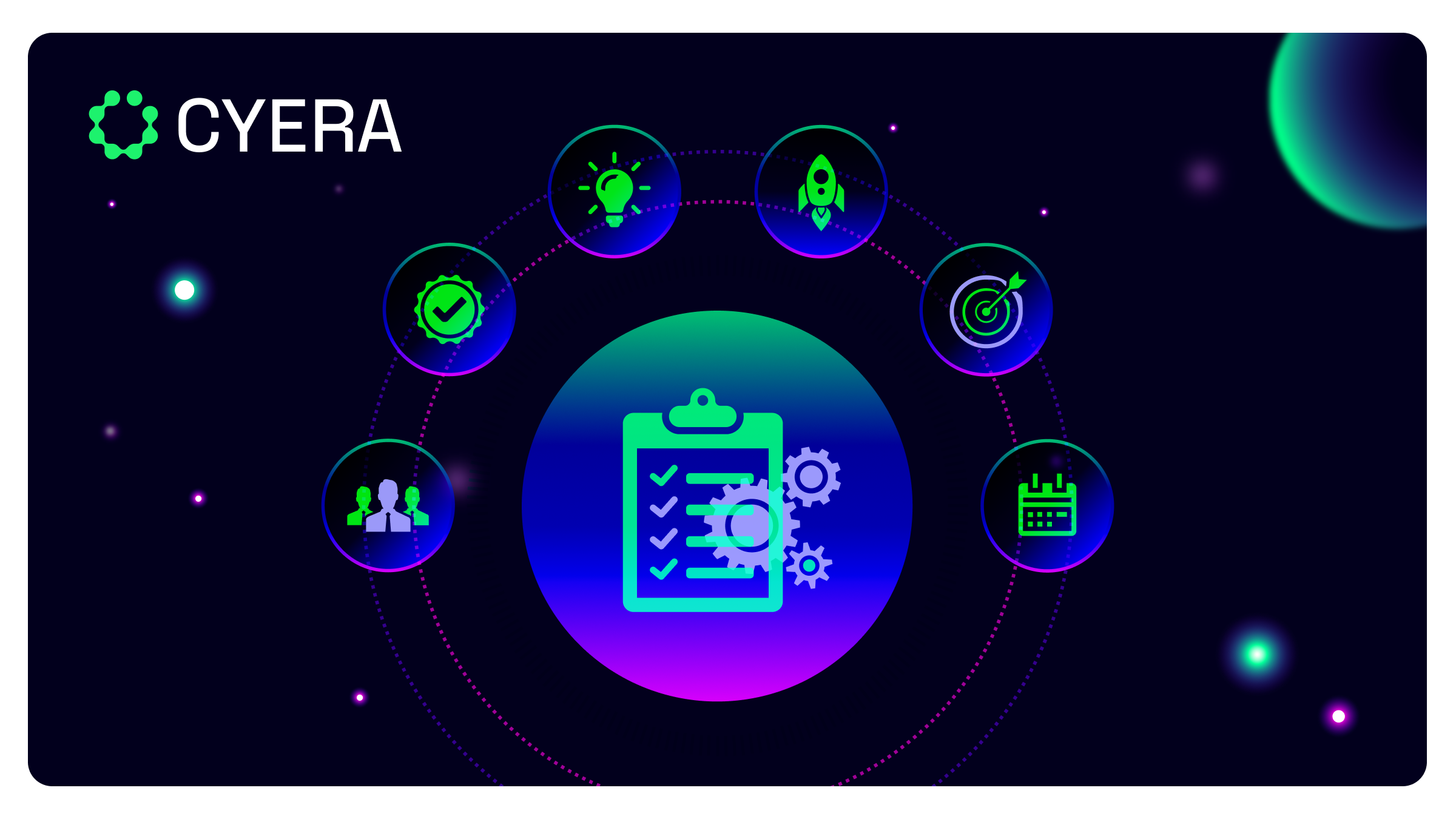Top 9 DSPM Vendors For 2025
.avif)
This guide explores why DSPM matters and highlights the top nine vendors leading the charge in 2025.
What is Data Security Posture Management (DSPM)?
For organizations, a DSPM is a vital cybersecurity tool that safeguards sensitive data across cloud, on-premise, and hybrid environments.
It achieves this by continuously discovering and classifying data, offering organizations a complete view of exactly where their sensitive data resides, how it’s accessed, and where it’s most at risk.
This helps prevent breaches and maintain regulatory compliance, all while strengthening an organization’s overall data security posture.
Unlike traditional tools, DSPM focuses its efforts on securing the data itself, rather than simply securing infrastructure or endpoints.
This “data-first” strategy is more attuned to modern data risks and provides a better, more effective solution for securing data across multiple environments.
Why Organizations Need DSPM Vendors in 2025
There are several key reasons why organizations need to deploy DSPM:
- Cloud data is growing at an exponential rate. In 2025, global data is projected to reach 200 zettabytes, 50% of which will be stored in the cloud. As companies scale across multi-cloud environments, they struggle to keep control of it. Sensitive data often ends up stuck in silos, being duplicated, or even forgotten altogether.
- Shadow data and unmanaged AI training sets are increasingly posing a risk because teams with little to no oversight frequently access and replicate these datasets.
- Security teams without a DSPM have no view of data exposure and can’t see policy violations across environments. Without visibility, they don’t know what needs protecting.
- As regulatory and compliance expectations from bodies such as HIPAA, GDPR, and PCI DSS grow, legacy tools have failed to keep up. Many regulators now demand automated, data-centric tools that older systems can’t provide.
- Finally, DSPM bridges the gap between a traditional DLP/CSPM and the new reality of decentralized, always-moving data.
The New DSPM Vendor Landscape in 2025
The rise of the standalone DSPM product offers a solution that matches the shift in security priorities.
Organizations must move from protecting infrastructure toward protecting the data itself.
While some vendors integrate DSPM within broader cloud security platforms (CNAPP), others, like Cyera, have built dedicated, standalone solutions from the ground up.
This guide explores 9 top DSPM vendors making an impact in 2025, with Cyera leading the way for its cloud-native architecture, automation-first design, and real-time risk management.
#1 Cyera
Founded in 2021, Cyera has become the fastest-growing data security company of all time.
It features a pioneering AI-powered DSPM, which enables organizations to discover, classify, and monitor data across all environments while providing deep context on exposure and risk.
Cyera boasts a 95 %+ precision rate and can be used by organizations of all industries and sizes, thanks to its built-in scalability and compliance protocols.
Platform at a Glance
- Agentless and API-based, designed specifically for modern cloud environments, enabling rapid implementation without complex integrations.
- Provides a unified view of data across IaaS, SaaS, and hybrid stacks, doing away with data silos and blind spots.
- Real-time classification and policy enforcement ensure that all data is continuously identified and protected.
- Automated compliance to meet regulatory requirements by aligning data flows and controls to major regulators.
Features:
- Continuous discovery and context-aware classification using advanced AI and proprietary DataDNA technology.
- Shadow data and AI model input tracking give control over data flowing into AI systems.
- Compliance mapping for GDPR, HIPAA, PCI, etc., to meet global standards and maintain audit readiness.
- Integration with SIEMs, IAMs, and ticketing tools to streamline alert responses.
- Automated remediation workflows for fast, targeted responses to exposed risks.
Core Problems that Cyera Eliminates
Cyera eliminates multiple data security issues and vulnerabilities, most notably:
- Cyera seeks out and identifies sensitive data that other tools miss, including shadow data and assets created by SaaS sprawl or language learning models (LLMs).
- With automated classification, compliance mapping, and policy enforcement, Cyera removes manual, error-prone processes and replaces them with an efficient, hands-off method.
- Inconsistent data security policy enforcement is replaced with real-time, context-aware controls that ensure the uniform application of policies, even in rapidly changing environments.
- Automated mapping and reporting close the gaps and remove compliance blind spots that can result in regulatory breaches.
Testimonial
“Cyera is built for how security needs to work today. It’s AI-native, fast, and incredibly efficient. What used to take days now happens in near real time, and that makes all the difference.”
Rinki Sethi, bill.com
#2 SentinelOne
SentinelOne features its Singularity Platform and AI-powered protection, enabling organizations to detect and respond to threats across all digital environments.
Consistently ranked as a top performer in endpoint security, SentinelOne offers both agent-based and agentless deployment options with scalable protection for organizations of all sizes.
Features:
- Combines DSPM with CSPM, CWPP, and CIEM for a unified CNAPP solution and comprehensive cloud-native application protection.
- Utilizes AI to identify and respond to threats in real-time across cloud environments.
- Integrates with SIEM, IAM, and additional security tools.
- Offers support for regulatory compliance.
#3 BigID
BigID is a cloud-native data security and privacy platform with a modular architecture.
It offers prompt-based data classification and customizable compliance and risk reporting, making it a good choice for organizations with complex data and regulatory challenges.
Features:
- Automatically identifies and classifies sensitive data across structured and unstructured sources.
- Provides tools to assess data risks and implement remediation strategies to protect sensitive information.
- AI risk governance for data used in LLMs, ensuring compliance with emerging AI regulations.
- AI-powered assistants for security prioritization, data stewardship, and program support.
#4 Varonis
Varonis is an agentless data security platform that combines real-time visibility with automated prevention, compliance support, and proactive threat detection.
Features:
- Continuously monitors data access and automatically remediates risks by enforcing policies and detecting threats in real-time.
- Offers deep visibility into data sensitivity and access patterns to inform security decisions.
- Uses powerful forensics to create a searchable audit trail for compliance reporting.
#5 Symmetry Systems
Centered on its DataGuard solution, Symmetry Systems gives deep visibility and control for sensitive data across complex, multiple environments.
Features:
- Provides actionable insights across various data security vectors to establish a robust data security posture.
- Enables organizations to understand where sensitive data resides and how it’s accessed and used.
- Gives granular access controls and real-time monitoring to reduce risks from broad permissions.
#6 CipherCloud
A prominent cloud security platform, CipherCloud delivers a scalable, agentless architecture that seamlessly integrates with enterprise security systems.
Features:
- Focuses on encryption and tokenization to secure data across multiple cloud environments.
- Offers tools for real-time policy enforcement on SaaS applications to ensure data security.
- Scans for all cloud applications in use and provides visibility into data flows and user activity.
#7 Digital Guardian
Digital Guardian is an enterprise-grade tool that delivers data protection across networks, endpoints, and cloud environments.
Features:
- Acts as a remote extension of your team, offering data protection as a managed service with 24/7 monitoring.
- Provides capabilities from discovery to monitoring to blocking, ensuring sensitive data is protected throughout its lifecycle.
- Includes a secure web gateway to protect users from web-based threats and malicious content.
#8 Netwrix
Netwrix offers an agentless solution for cloud-based and on-premises data protection. It’s recognized for its ease of use and integrated approach to data and identity security.
Features:
- Identifies and classifies shadow and sensitive data across various environments to prevent data breaches.
- Assesses, prioritizes, and mitigates risks to sensitive data, providing alerts on critical changes.
- Utilizes AI assistants to query data security using natural, conversational language.
#9 Securiti.ai
Specializing in data security across hybrid and multicloud environments, Security.ai is highly scalable and able to meet the demands of organizations of all sizes.
Features:
- Offers tools for data discovery, classification, and governance across hybrid multicloud environments.
- Provides automation for privacy, governance, and compliance obligations to ensure data security.
- Links personal data to its owners, triggering automated privacy requests and rights.
How to Choose the Right DSPM Vendor
Choosing the right DSPM vendor starts with a comprehensive assessment of your organization’s security and data needs.
To do this, you need to:
- Map your data landscape: Understand where your most sensitive data lives and what the priorities are for protecting it.
- Assess your environments: Do you need multi-cloud? Are you SaaS-heavy? Or, do you want an on-premises hybrid solution?
- Prioritize integration and automation: Look for DSPM tools that work with your existing security ecosystem and provide native integration capabilities.
- Review compliance needs: Ensure the vendor supports regulatory frameworks like NIST, GDPR, HIPAA, and more, especially if your organization has to comply with them when conducting day-to-day business.
- Consider ease of deployment: Agentless, API-based platforms like Cyera reduce friction and complexity. Choose a platform that offers a seamless and pain-free deployment method.
Conclusion
DSPM is no longer optional. Today, it's the foundation for modern data security. As cloud adoption accelerates and regulatory scrutiny tightens, organizations must gain control over their sensitive data before it’s too late.
Among the vendors reshaping this space, Cyera stands out as the leader, delivering powerful, fast, and intelligent data security at scale.
FAQs
What is DSPM?
If you're wondering what is DSPM, it stands for Data Security Posture Management, and it refers to a category of cybersecurity tools that secure sensitive data across cloud, on-premises, and hybrid environments.
It achieves this by automatically discovering where data resides, classifying its sensitivity, and managing access and risk through ongoing monitoring.
What are the benefits of DSPM tools?
The benefits of DSPM tools include improved data visibility to understand where sensitive information lives. They also provide automated features to ensure compliance with regulatory bodies such as HIPAA and GDPR.
Additionally, DSPM reduces the risk of security breaches by identifying and remediating vulnerabilities and ensuring secure data handling in AI/ML workflows and other complex data pipelines.
How does DSPM work?
A DSPM tool works by scanning environments, infrastructure, and applications to locate and identify sensitive data. Then, it classifies it based on context, type, and usage while assessing it for risk exposure.
Through constant monitoring, it provides real-time alerts or automated remediation when threats and policy violations are detected.
Who uses DSPM?
DSPM is used by professionals who are responsible for data security and compliance within an organization. These include security and compliance teams, Chief Information Security Officers, data governance professionals, and DevSecOps leaders.
Who are the leading DSPM vendors in 2025?
The leading DSPM vendors in 2025 are: Cyera, SentinelOne, BigID, Varonis, Symmetry Systems, CipherCloud, Digital Guardian, Netwrix, and Securiti.ai.
How do DSPM vendors help with compliance management?
DSPM vendors assist with compliance by continuously mapping data to regulatory frameworks such as GDPR, HIPAA, CCPA, and more. They generate real-time, audit-ready reports that track data usage and policy violations, making it easier for organizations to prove compliance and respond to audit requests.
How do DSPM vendors handle data classification and discovery?
DSPM vendors handle data classification and discovery by using automated and often agentless scanning to uncover sensitive data across multiple environments.
The DSPM then applies business context, such as source, usage, and sensitivity level, to correctly classify the data.
With these insights, organizations can prioritize potential risks and ensure they enforce appropriate security protocols.
Gain full visibility
with our Data Risk Assessment.



